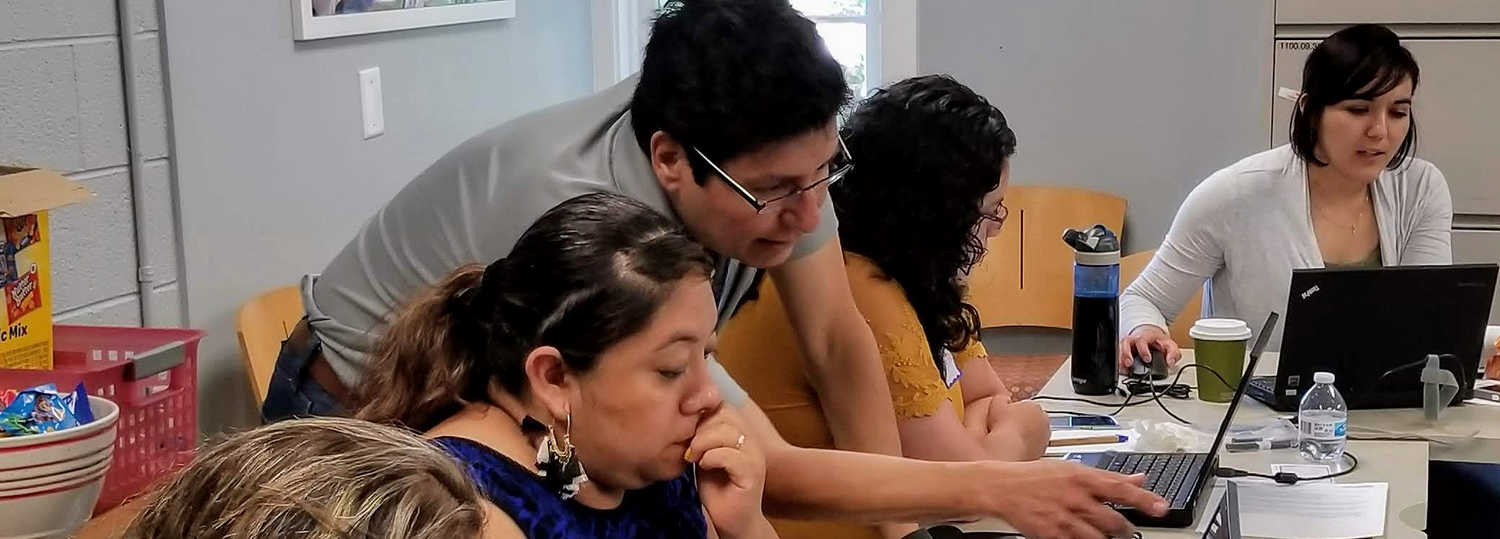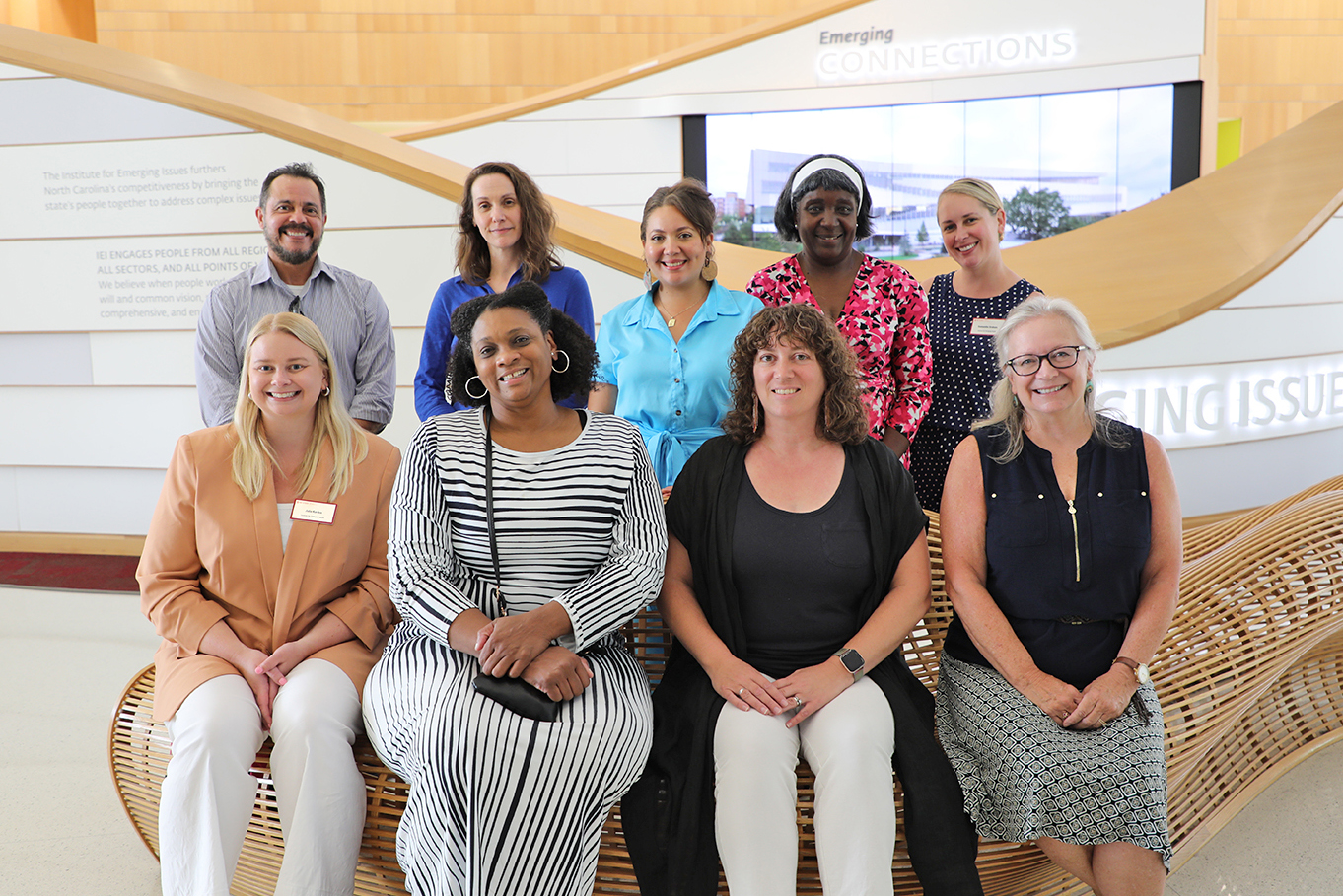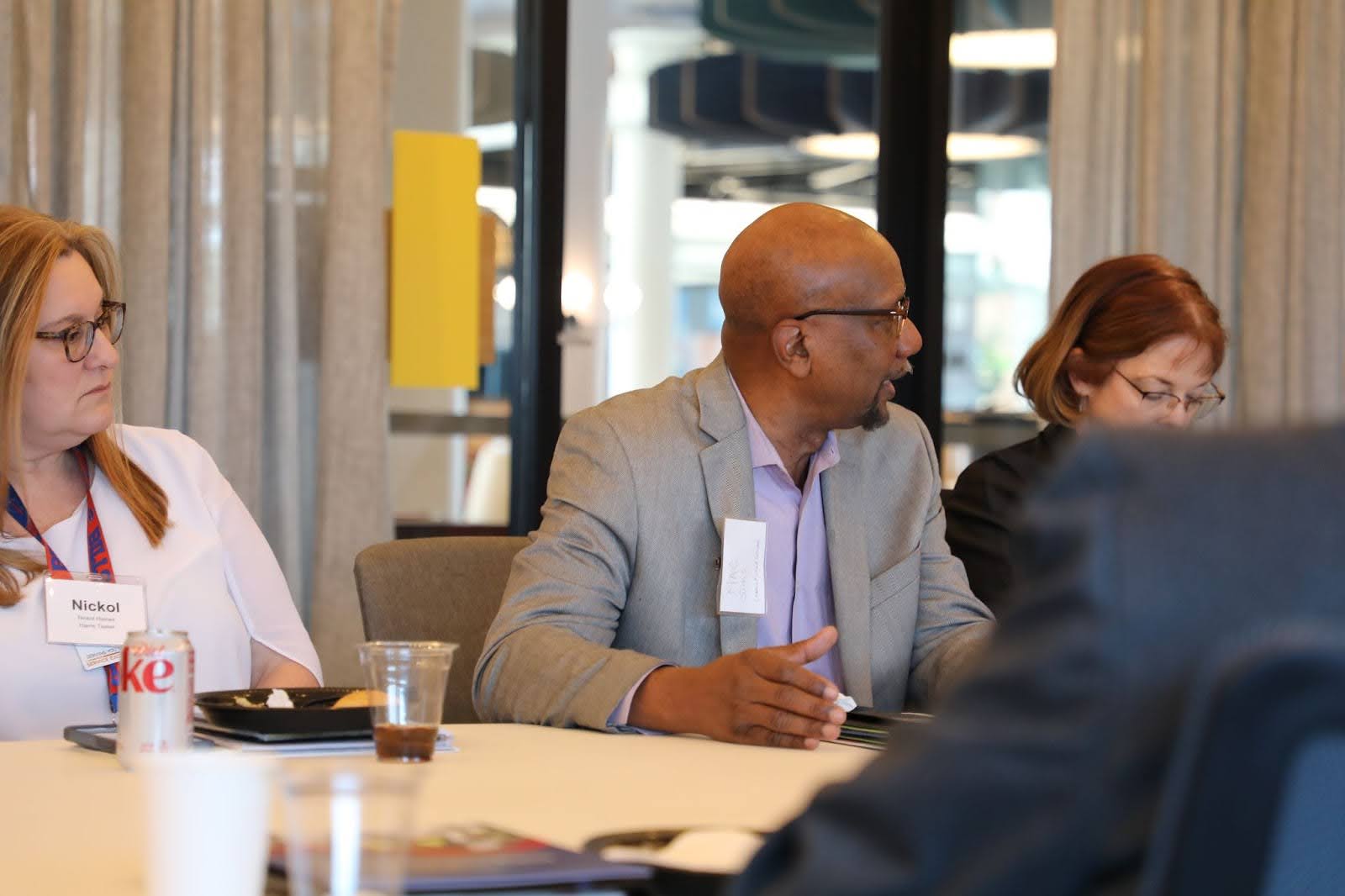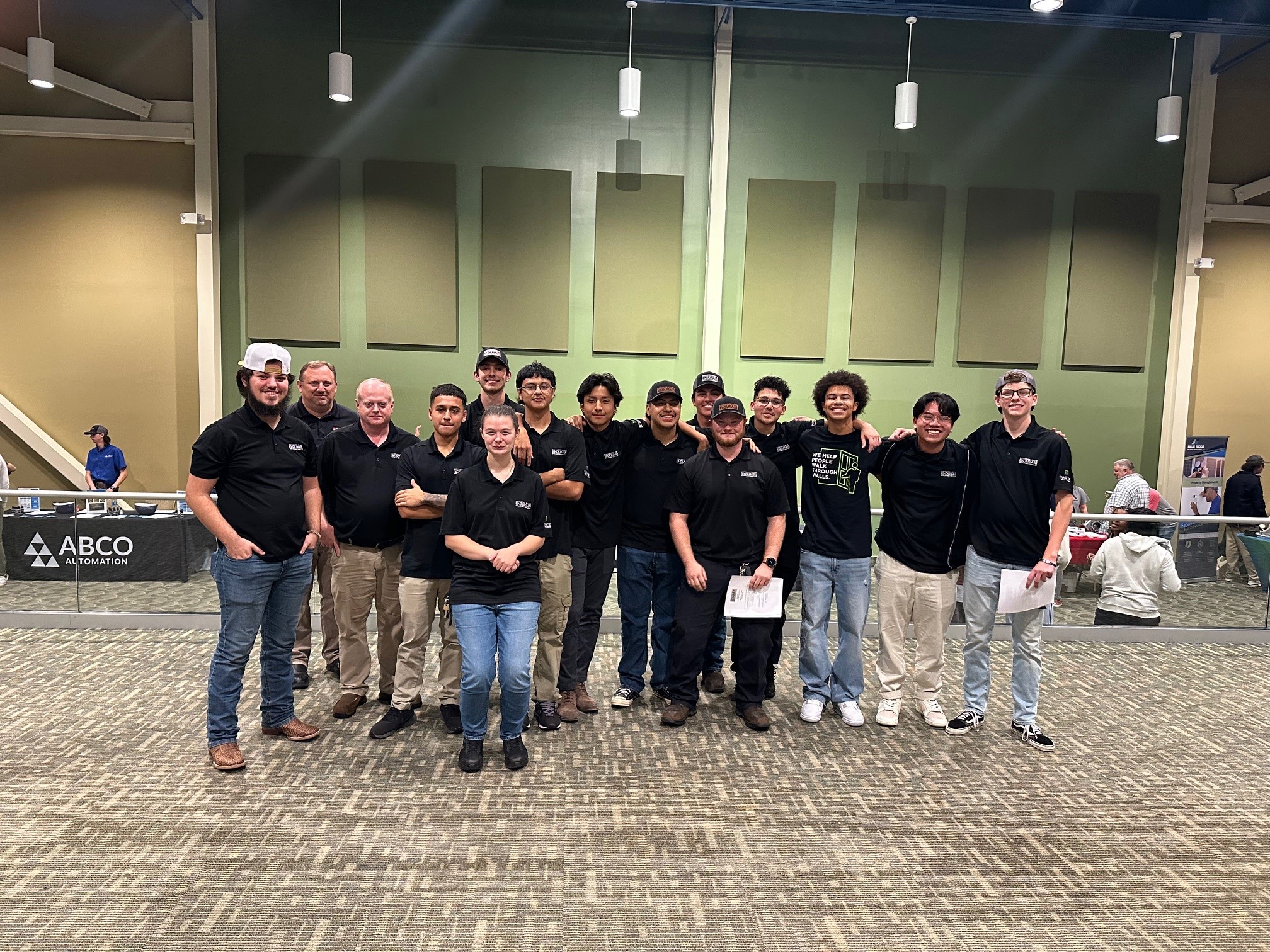Digital Durham (Reconnect to Technological Opportunity)

The “digital divide” in our country looks different depending on which side you sit on, and what sort of community you live in. Laura Fogle is one of the founders of Digital Durham, with a goal to “expand digital inclusion to underserved populations in Durham County.” She describes the problem she saw when the organization started: “At one point,” she says, “I remember thinking we can solve this problem if we get enough computers and training, but it’s always changing.” It also varies from place to place: among rural edges without broadband services, poorer urban households in need of subsidized service, immigrant families who face language barriers, older populations unfamiliar with modern technology, or people who are intersected by numerous disadvantages.
While the issues underlying the digital divide have existed for decades, the unique circumstances of COVID-19 have made them all the more devastating. People who lack computers and internet access at home now face compounded disadvantages: difficulties finding work, assistance, or the online training that could help them improve their skills. Those who relied on Durham’s Public libraries for internet access, digital assistance and help developing their resumes were now cut off from that support, as were the senior citizens receiving digital literacy training at UNC’s Community Workshop Series. These were a few of many anecdotes shared at what would become a significant meeting of the collective in March of 2020.
“Our meeting started with a little bit of hopelessness… we knew the people we serve were hurting more intensely than when we last saw them, and now, we can’t see them—it broke our hearts,” said Laura. And yet, hearing about each of their struggles lit a collective fire inside them. “By the end of the meeting, we came together to say, we are not gonna let this stop us… we are gonna figure out a way to bring these issues to forefront… and push our community to find solutions and implement them.” Ultimately, this mutual understanding of their shared problems and struggles got them “to the place of hopefulness and empowerment … because we can do it together.”
The advantage of the collective, which now has grown to 11 volunteers from “member” institutions with shared visions, is that it can see a problem from many angles and draw upon the wisdom of its members. The Kramden Institute, whose work includes refurbishing computers, delivering them to those in need, and teaching computer literacy skills, realized that if they delivered a computer to a house, they could then talk a person through the setup by phone. In collaboration, the libraries realized that they needed “Digital Navigators” who could assist users by phone, while also lending out mobile hotspots to help patrons without internet access. In this respect, Digital Durham facilitates productive exchanges between partners, while recognizing that the scale of the problems will require coordinated strategy.
In a sense, this meeting launched the Durham Digital Equity Plan, which has been led by Jennifer Ethridge of Triangle eCycling and seeks to catalogue the barriers the community is facing and find a strategy to address them. Still in progress, the plan builds on input from the community provided through surveys and focus groups in order to understand the problems faced by its community members and the solutions they need. The plan will be published later in the quarter, but some initial findings are available in a mixed-methods report. Laura insists that in order to make a meaningful impact, it needs to be taken up by people “who have the decision-making power to make something happen: city and county leaders, so that they are owning the plan with us.”
Their work is still young, but Laura is learning a lot about bridging divides from her work with Digital Durham. “If you see a problem in your community… be willing to take the step to talk to other people about it and try to bring them together around [it]. And if there’s nobody who’s working on solving it, just keep building from that small place, because that’s how things happen—when individual, dedicated, people get together.”
Written by Chris Kampe.
- Categories:


